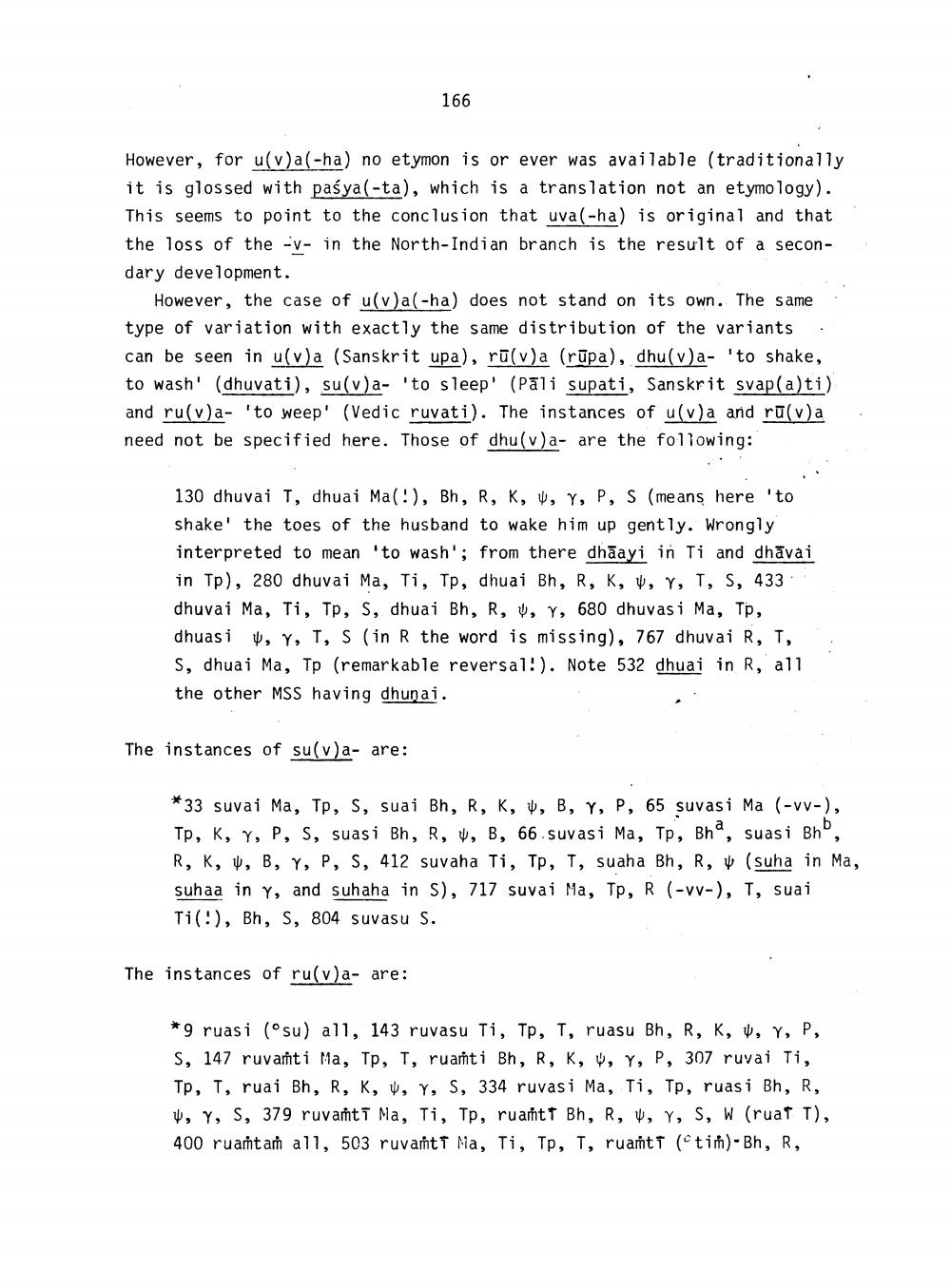________________
166
However, for u(v)a(-ha) no etymon is or ever was available (traditionally it is glossed with paśya(-ta), which is a translation not an etymology). This seems to point to the conclusion that uva(-ha) is original and that the loss of the -v- in the North-Indian branch is the result of a secondary development.
However, the case of u(v)a(-ha) does not stand on its own. The same type of variation with exactly the same distribution of the variants can be seen in u(v)a (Sanskrit upa), ru(v)a (rupa), dhu(v)a- 'to shake, to wash' (dhuvati), su(v)a- 'to sleep' (Pali supati, Sanskrit svap(a)ti) and ru(v)a 'to weep' (Vedic ruvati). The instances of u(v)a and ru(v)a need not be specified here. Those of dhu(v)a- are the following:
130 dhuvai T, dhuai Ma(!), Bh, R, K, V, Y, P, S (means here 'to shake' the toes of the husband to wake him up gently. Wrongly interpreted to mean 'to wash'; from there dhaayi in Ti and dhavai in Tp), 280 dhuvai Ma, Ti, Tp, dhuai Bh, R, K, V, Y, T, S, 433 dhuvai Ma, Ti, Tp, S, dhuai Bh, R, , Y, 680 dhuvasi Ma, Tp, dhuasi, Y, T, S (in R the word is missing), 767 dhuvai R, T, S, dhuai Ma, Tp (remarkable reversal:). Note 532 dhuai in R, all the other MSS having dhunai.
The instances of su(v)a- are:
*33 suvai Ma, Tp, S, suai Bh, R, K, , B, Y, P. 65 suvasi Ma (-vv-). Tp, K, Y, P, S, suasi Bh, R. v. B, 66.suvasi Ma, Tp, Bh, suasi Bhb, R, R, K, , B, Y, P, S, 412 suvaha T1, Tp, T, suaha Bh, R, (suha in Ma, suhaa in Y, and suhaha in S), 717 suvai Ma, Tp, R (-vv-), T, suai Ti(), Bh, S, 804 suvasu S.
The instances of ru(v)a- are:
*9 ruasi (su) all, 143 ruvasu Ti, Tp, T, ruasu Bh, R, K, 4, y, P, S, 147 ruvamti Ma, Tp, T, ruamti Bh, R, K, W, Y, P, 307 ruvai Ti, Tp, T, ruai Bh, R, K, V, Y, S, 334 ruvasi Ma, Ti, Tp, ruasi Bh, R, , Y, S, 379 ruvatT Na, Ti, Tp, ruafitt Bh, R, W, Y, S, W (ruat T), 400 ruamtam all, 503 ruvant? Na, Ti, Tp, T, ruafitT (ti)-Bh, R,




